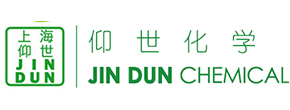144
Microcrystalline Cellulose: What Is It and How Is It Used?
2023/5/8
Microcrystalline cellulose (MCC) is a type of cellulose, which is a natural polymer made of glucose units linked together. Cellulose is the most abundant organic compound on Earth and can be found in plants, algae, fungi, and bacteria.
MCC is produced by hydrolyzing cellulose from wood pulp or cotton fibers using acids or enzymes. This process breaks down the cellulose into smaller and more uniform particles that have a crystalline structure. MCC has many properties that make it useful for various applications, such as:
MCC is produced by hydrolyzing cellulose from wood pulp or cotton fibers using acids or enzymes. This process breaks down the cellulose into smaller and more uniform particles that have a crystalline structure. MCC has many properties that make it useful for various applications, such as:
- Stability: MCC is resistant to heat, moisture, light, and chemicals. It does not degrade or change its shape over time. It also does not react with other substances or cause allergies or toxicity.
- Solubility: MCC is insoluble in water and most organic solvents. It can form gels or suspensions when mixed with water or other liquids. It can also swell and absorb water up to several times its weight.
- Viscosity: MCC can increase the viscosity or thickness of liquids without changing their flavor or color. It can also prevent the separation or settling of solid particles in liquids.
- Compressibility: MCC can be compressed into tablets or capsules without losing its shape or breaking apart. It can also bind other ingredients together and prevent them from sticking to the equipment.
- Flowability: MCC can improve the flowability or ease of movement of powders or granules. It can also prevent them from clumping or caking.
Uses of Microcrystalline Cellulose
Some of the possible uses of MCC are:- Food industry: MCC is used as a food additive to improve the texture, stability, and shelf life of various food products, such as dairy products, sauces, dressings, baked goods, candies, beverages, and dietary supplements. It can also act as a fat replacer, a fiber source, a bulking agent, a thickener, a stabilizer, an emulsifier, or an anti-caking agent.
- Pharmaceutical industry: MCC is used as an excipient or inactive ingredient in many pharmaceutical products, such as tablets, capsules, powders, granules, pellets, and coatings. It can also act as a binder, a filler, a disintegrant, a lubricant, a glidant, or a diluent.
- Cosmetic industry: MCC is used as a cosmetic ingredient to improve the appearance, feel, and performance of various cosmetic products, such as creams, lotions, gels, shampoos, conditioners.

